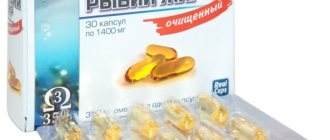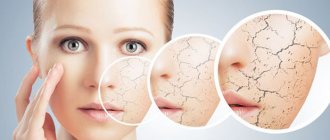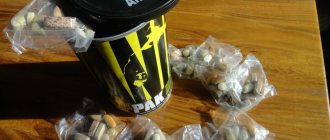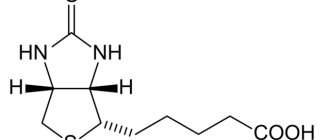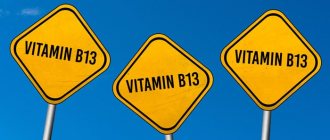It's all about the sun
Sunlight consists of electromagnetic rays of various ranges, while only short-wave ultraviolet B vitamin For our latitudes, this means that between November and April the synthesis of vitamin D is impossible, since ultraviolet B rays do not reach the earth's surface. Additionally, the ability to receive enough sunlight to produce this vitamin depends on other factors, such as lifestyle, clothing, time of day, degree of air pollution, or quality of sunscreen. Increasing immobility and the ability to synthesize vitamin D, which is lost with age, do not help replenish cholecalciferol levels, which primarily affects older people.
Vitamin D cannot be called a true vitamin, since, according to the definition, vitamins include substances that the body is not able to synthesize on its own and which must come from outside. Cholecalciferol can be independently produced by our body. It does not matter what type of vitamin D it is: vitamin D synthesized in the skin, vitamin D3 obtained from animal sources, or vitamin D2 consumed from plant foods - all forms of this vitamin pass through the bloodstream to the liver, where they are converted into 25-hydroxyvitamin D Thus, cholecalciferol is a prohormone that enters the adipose tissue and kidneys in the form of 25-hydroxyvitamin D, where it is converted into a real hormone, namely calcitriol.
In fact, vitamin D, found in many tissues, is important for the functioning of the entire body, since the bones, kidneys, parathyroid gland and cells of the mucous membrane of the small intestine have special receptors that respond to the presence of calcitriol in the body.
Benefits and daily intake of vitamin D
Vitamins of group D are on the list of essential microelements for the human body. They have many useful properties:
- prevent calcium leakage;
- improve the condition of teeth, bones and nails;
- relieve weakness;
- affect depression;
- help the baby form organs in the womb;
- affect muscle health.
Vitamin D3 is recommended to be taken from foods that contain it or as a dietary supplement. There are various forms of release of the element on the market: drops, capsules, tablets. The trace element is present mainly in foods such as fatty sea fish and seafood.
Vitamin D3 Daily Value Table
| Age | Daily requirement, in mg | Upper limit of normal, in mg |
| Infants (up to one year) | 400 | 1500 |
| Children (from one to 14 years old) | 600 | 2500 |
| Teenagers (14-18 years old) | 600 | 4000 |
| Adults (18-70) | 600 | 4000 |
| Elderly (over 70 years old) | 800 | 4000 |
| Pregnant and nursing | 600 | 4000 |
https://youtu.be/1Er7SNF4X4M
Importance of Vitamin D for Athletes
Vitamin D is involved in bone formation, the functioning of muscle mass, the nervous system and maintaining the overall performance of the body, so the level of this vitamin is of great importance for any athlete. Long-standing studies indicate that various physical characteristics are improved after exposure to ultraviolet B rays. Studies have described improved reaction ability, increased endurance and, so to speak, improved muscle mass trainability. In addition, in conditions of vitamin D deficiency, the occurrence of fractures when the body is in a state of stress and infectious disease and a slowdown in heart rate have been established. The subjects were athletes from endurance sports (running and artistic gymnastics).
The discovery of vitamin D receptors in muscle mass suggests that it is important for muscle function and overall body performance. In addition, vitamin D has been proven to be effective in supporting immunity, as it helps the body fight various pathogens.
Athletes' lifestyles do not always allow them to get enough sunlight, so monitoring vitamin D levels in the body is an important task for any athlete.
Iron Health
Vitamin D is a fat-soluble vitamin produced in the skin under the influence of ultraviolet rays. It has poor resistance to light and is easily oxidized.
Vitamin D is involved in the absorption of calcium and phosphorus in the small intestine, the reabsorption of phosphorus in the renal tubules, and the transport of calcium from the blood to bone tissue.
This substance is used to treat rickets, increase the body's resistance, activate calcium and mineralize bones, increase the density of muscle tissue and increase the speed of brain function.
D deficiency
The lack of this substance in the body leads to a violation of phosphorus-calcium metabolism, a disorder of salt metabolism and, as a consequence, insufficient deposition of lime in the bones.
Excess Vitamin D
Hypervitaminosis D also leads to negative consequences for the body, the symptoms of which are:
- Muscle flaccidity
- Decreased appetite or loss of appetite
- Nausea
- Abdominal pain
- Diarrhea
- Heartburn
- Thirst
- Polyuria
- Arterial hypertension
- Decreased heart sounds
- Fever
- Systolic murmur
All this leads to demineralization of bones, increased levels of calcium and phosphorus in the blood, calcium deposition in soft tissues (vessels, heart, lungs, intestines, kidneys) and the formation of kidney stones.
Vitamin D in bodybuilding
A number of scientific studies have proven that if there is a deficiency of vitamin D in the body, its additional intake leads to an increase in testosterone production and an increase in strength indicators. However, with a sufficient amount of vitamin D in the body, these effects were not observed, and an excess leads to the manifestation of the above symptoms.
Links to studies:
- ncbi.nlm.nih.gov/pmc/articles/PMC3712348/
- ncbi.nlm.nih.gov/pubmed/18351428
- ncbi.nlm.nih.gov/pubmed/20050857
- wiley.com/doi/10.1111/j.1365-2265.2012.04332.x/abstract;jsessionid=39A4EF02A366FD626A4A8A00CD537D8C.f02t04?deniedAccessCustomisedMessage=&userIsAuthenticated=false
- ncbi.nlm.nih.gov/pubmed/21154195
Thus, taking vitamin D can have a positive effect on testosterone hormone levels and strength performance in the gym, but only in cases of vitamin D deficiency in the body. Dosages and course of administration
The daily intake of vitamin D for an adult is 1-10 mcg; in bodybuilding, increased dosages of 10-20 mcg are used. The maximum permissible dose of vitamin D is 50 mcg/day.
The daily requirement for this vitamin is met through its formation in the skin (via ultraviolet rays) and from food. In addition, a significant amount of vitamin D can be deposited in the liver, which is enough for a year, so most often additional intake of this substance is not justified.
An overdose of vitamin D is accompanied by toxic poisoning, which manifests itself in the form of loss of appetite, nausea, fever, vomiting, weakness, irritability and sleep disturbances.
see also:
- Drugs and supplements to increase testosterone
Effect on testosterone levels
Studies have shown that calciferol is able to regulate gene expression processes, among which there are several responsible for the synthesis of testosterone. This is why vitamin D is especially useful in bodybuilding and is very popular among bodybuilders.
Scientists conducted a large-scale experiment in which more than two thousand men took part. The results confirmed the dependence of testosterone levels on the amount of vitamin D in the body. In the group of experimental subjects with low calciferol concentrations, the level of the male hormone was also low.
In addition, it has been found that low levels of the vitamin reduce globulin activity. This suggests the ability of this substance to increase the concentration of testosterone in free form and consider vitamin D in bodybuilding an important component of sports nutrition. After all, the results of experiments have proven the direct effect of calciferol on the growth of muscle mass.
Effect on the enzyme aramatase
Many athletes who use aramatizing steroids often experience negative estrogenic effects. This is considered the norm, because many testosterone esters are popular among fans of strength sports. This process must be kept under control, otherwise the level of male sex hormone will decrease.
Vitamin D in sports helps fight such negative manifestations, as it has pronounced anti-estrogenic properties. Of course, it is not as effective as the corresponding drugs, but the fact itself speaks of its ability to influence the concentration of the dough.
Deficiency Symptoms
The problem of element deficiency is extremely common. It mainly occurs in residents of northern latitudes, the USA, some countries in Asia and Europe. The reasons for this include the partial absence of one of the most important sources of the vitamin - sunlight. The human body receives the vitamin not only from food - it is synthesized in large quantities under the skin with the help of ultraviolet rays.
Microelement deficiency can lead to the following unpleasant symptoms and some diseases:
- depression;
- sleep disorders;
- nervous overexcitation;
- weakened immunity;
- the occurrence of rickets (in children);
- risk of cardiovascular diseases;
- psoriasis;
- vitiligo;
- pain in muscles and joints.
The female body especially needs this element during pregnancy and lactation, since its deficiency can affect the health of the child. To avoid such problems, make sure you regularly include foods rich in vitamins in your diet and, if necessary, consume it additionally.
Contraindications
Medicines containing calciferol should not be taken for the following pathologies:
- tuberculosis;
- stomach ulcers;
- hypercalcemia;
- heart disease;
- individual intolerance;
- acute kidney and liver diseases.
Each supplement may have its own contraindications, so before purchasing the drug you need to study the composition and instructions for use.
Side effects
There are quite a lot of negative manifestations of vitamin D, but they only occur when daily dosages are violated and individual intolerance occurs. Some of these side effects include the following:
- headache;
- irritability;
- sudden mood swings;
- increased blood pressure;
- nausea and vomiting;
- muscle weakness.
If you exceed the daily vitamin intake for a long time, calcifications may form in various organs.
Excess vitamin D
To maintain health and well-being, you should monitor not only the daily intake of the vitamin, but also the upper limit of the norm. If you take too much vitamin D, you may experience the following consequences:
- disruption of the heart and kidneys;
- excessive stress on the nervous system;
- loss of appetite;
- permanent irritation;
- constipation;
- vomit;
- an increase in the amount of phosphoric acid, cholesterol and proteins in the blood.
With a balanced and healthy diet, it is extremely difficult to obtain an excess of the element from food. The danger lies mainly in the food additive containing it. Before purchasing any medicine, be sure to get tested at the clinic and consult with your doctor. Supplements should be taken strictly following the instructions and not exceeding the dose.


